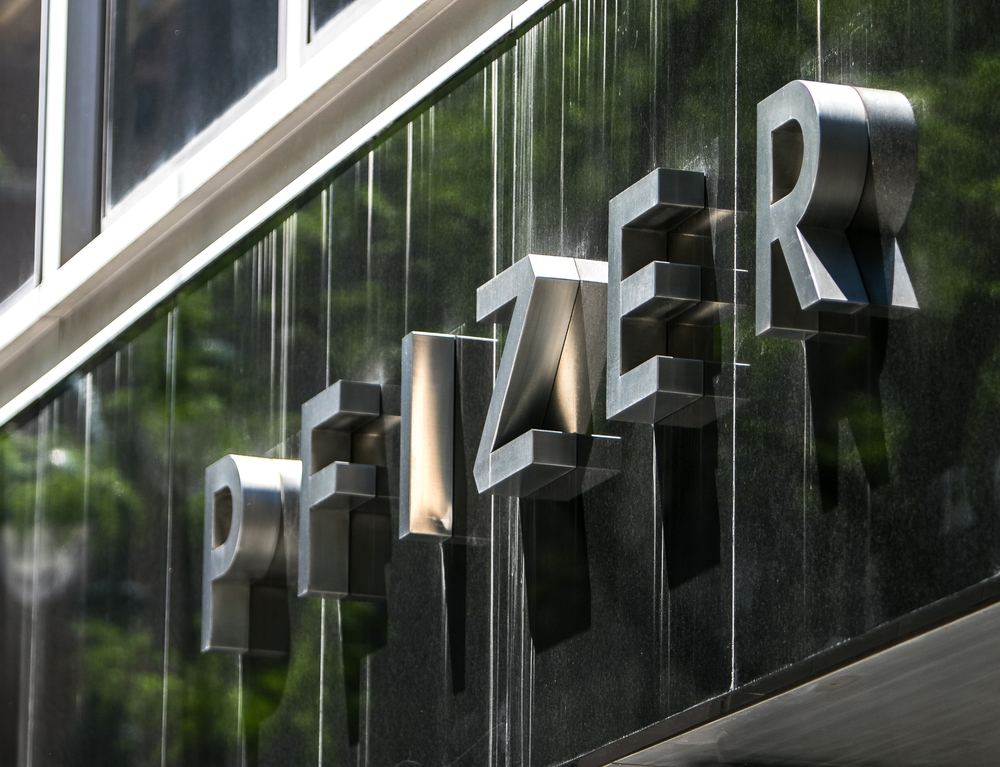
Drugmaker Pfizer’s third-quarter profit plunged 38 percent as higher spending and a slew of charges related to acquisitions more than offset higher sales, sending its shares down before the stock market opened.
The mediocre results missed Wall Street expectations, Pfizer lowered the top end of its 2016 profit forecast and it said it was scrapping development of a closely watched experimental cholesterol drug.
Pfizer said that drug, called bococizumab, was discontinued due to unimpressive results of late-stage testing and limited commercial prospects, an ominous sign as payers squeeze pharmaceutical companies amid public fury over soaring drug prices. Bococizumab is part of a new and very expensive class of cholesterol medicines, PCSK-9 inhibitors, for which insurers are aggressively limiting patient access in favor of cheap generic cholesterol pills such as Pfizer’s former blockbuster Lipitor.
Following Pfizer Inc.’s Sept. 26 announcement that it won’t split into two companies to accelerate growth – a move some investors and analysts had hoped would boost Pfizer’s lagging stock – investors began selling off shares Tuesday.
In premarket trading Tuesday, shares fell 56 cents, or 1.8 percent, to $31.15.
“Some investors feel the company has careened from strategy to strategy over the past few years,” said Erik Gordon, a professor and pharmaceuticals analyst at University of Michigan’s Ross School of Business.
He said that included failed attempts at two mega-acquisitions – first of Britain’s AstraZeneca Plc in 2014 and this year of Ireland’s Allergan Plc – that were meant to slash Pfizer’s taxes, plus deals including this year’s much smaller one to acquire Medivation, plus abandoning its long-expected split into two companies.
Pfizer “has built shareholder value more on its wheeling and dealing” than on developing new medicines, Gordon added.
The maker of Viagra and pain treatment Lyrica posted net income of $1.32 billion, or 21 cents per share. That’s down from $2.13 billion, or 34 cents per share, in 2015’s third quarter.
Excluding $2.4 billion worth of charges for acquisitions and restructuring, adjusted earnings came to 61 cents per share, a penny less than analysts expected.
Revenue, which was boosted by last year’s mega-acquisition of injected drugmaker Hospira, totaled $13.05 billion, up 8 percent. Analysts were expecting $13.06 billion.
Sales increased 9 percent to $7.33 billion for Pfizer’s new medicine segment, while sales in its essential health business, which sells older, mostly off-patent, drugs, increased 7 percent to $5.71 billion.
Top seller Prevnar, a vaccine against pneumonia and related bacterial infections, dipped 3 percent to $1.54 billion, while Lyrica sales were flat at $1.24 billion.
New York-based Pfizer’s spending soared, partly due to acquisitions. Production costs jumped 39 percent, and spending on research and on marketing and administration both increased 9 percent.
Meanwhile, Pfizer said it expects full-year earnings in the range of $2.38 to $2.43 per share, down from its prior forecast of $2.38 to $2.48. It forecast revenue of $52 billion to $53 billion, a narrower range than its prior forecast of $51 billion to $53 billion.
Filed Under: Drug Discovery



